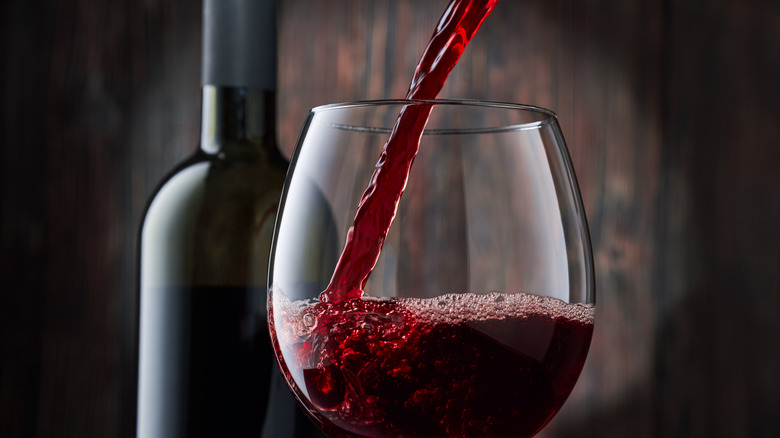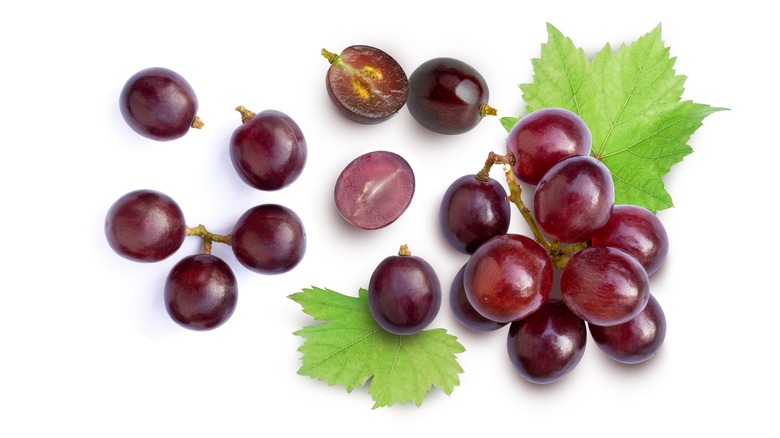What You Should Know If You Drink Red Wine For Its Health Benefits
The French Paradox is as follows: French people have a diet of animal fats, cheese, bread, and wine but manage to stay healthy. When this anomaly was first brought to light, some assumed that it was the red wine, vital to the French diet, that brought them good heart health and longevity of life. And science nodded its head in approval; a number of studies purported that red wine, in particular, contains tannins that are heart-healthy and anticarcinogenic. The old saying that an apple a day keeps the doctor away became "a glass of wine a day keeps the doctor away." But does it really?
Well, we aren't going to give you the old adage that moderation is key. That advice is too trite and can apply to everything we consume. So, it's worth considering whether or not these tannins do carry the antioxidant properties they're said to have, and if drinking red wine actually positively impacts our health.
Red wine has negligible health benefits
To demystify the French Paradox, along with the American fascination with the French lifestyle in general, let's look at the differences between France's work-life balance and our own. Business Culture clocks the average working hours of the French at about 35 a week, which means most have more leisure time in the day than working time. How this correlates to heart health is straightforward: lower stress levels mean better health (via Mayo Clinic). Perhaps a glass of red wine could help us decompress after a hard day at work, which would be beneficial in a roundabout way.
But even outside of France, it seems that red wine is doing more good than harm for those who regularly consume it. And on that observation, Dr. Tim Naimi tells Inverse that people who regularly drink red wine tend to be of higher socioeconomic status, which determines their work-life balance, their stress levels, and their nutrition outside of wine. So, it may not be the biochemical makeup of the polyphenols in red wine but the lifestyle that pairs well with it.
But aren't tannins good for you?
So what about the tannins that are found in red wine? Tannin content, which is said to have anticarcinogenic and antimutagenic properties, varies with the type of red wine. Not all red wines have equal amounts of tannins, which is what gives the wine an almost gritty mouthfeel versus a smoother one. Dry red wines like Bordeaux blends, Monastrell, and Tannat tend to have more tannins than sweeter reds like Pinot Noir and Dolcetto, per Somm TV. However, if your takeaway from this is that you'll enjoy a glass of dry red for the antioxidants, you may need to reconsider.
This medical study reveals the complex truth about tannins: they may not always be good for you. Tannin-rich foods such as betel nuts and teas have been correlated to higher rates of esophageal cancer but, in other cases, lower LDL cholesterol. These muddled results go to show that the harmful effects of alcohol may outweigh the benefits of tannins. On top of the uncertainty of tannins' effects on the human body, there are more reasons why you should reconsider drinking wine.


